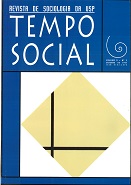Aluísio de Azevedo and Japan: a critical appreciation
DOI:
https://doi.org/10.1590/ts.v9i2.86691Keywords:
Japan, Modernization, Nationalism, Orient/Occident, Aluísio de AzevedoAbstract
The article analyses the book Japan by Aluísio de Azevedo, who was Brazil’s vice-consul in Yokohama, between 1887 and 1889. It tries to insert the author’s opinions and the fascination he seems to have for the Emperor in the complex context of japonization-process which ran throughout Japan at the end of the 80ies of the last century. Talking into account that the country of that time is immersed in a debate which opposes modernization to tradition inside the parameters of an exalted nationalism, the aim here is to investigate the fundaments of a perspective suggested by an author characterized by his brasility and by an idyllic perception of Japanese isolationism, a measure of purity in relation to Europe. The analysis emphasizes the oscillation between a look which tends to see the Orient as a homogeneous block contrasting with the Occident as well as the national question, which precisely is the assertion of a specificity.Downloads
References
AKAMATSU, Paul. (1993) Histoire et nihonjinron. In: COBBI, J. (org.). Pratiques et representations sociales des japonais. Paris, Harmattan.
ALLEN, G.C. (1980) Breve historia economica del Japon moderno. Madrid, Technos.
AZEVEDO, Aluísio de. (1980) Japonesas e norte-americanas. In: DIMAS, Antonio. Aluísio de Azevedo: literatura comparada. São Paulo, Abril.
AZEVEDO, Aluísio de. (1984) O Japão. São Paulo, Roswitha Kempf.
BARY, Wm. Theodore de & TSUNODA, Ryusaku (eds.). (1958) Sources of Japanese tradition. New York, Columbia University Press.
BEASLEY, W. G. (1989) The foreign threat and the opening of the ports. In: The Cambridge history of Japan: the nineteenth century. Vol. 5. Cambridge, Cambridge University Press.
BOLITHO, Harold. (1989) The tempo crisis. In: The Cambrige history of Japan: the nineteenth century. Vol. 5. Cambridge, Cambridge University Press.
CHESNAUX, J. (1976) A Ásia Oriental nos séculos XIX e XX. São Paulo, Pioneira.
DALE, Peter. (1995) The myth of Japanese uniqueness. London, Routledge.
DANTAS, Luiz. (1984) Apresentação e comentários. In: AZEVEDO, Aluísio. O Japão. São Paulo, Roswitha Kempf.
FRASER, J. T. (ed.). (1986) Time, science and society in China. Amherst, The University of Massachusetts Press.
GLUCK, Carol. (1985) Japan’s modern myths: ideology in the late Meiji period. Princeton, Princeton University Press.
HALL, J.W. (1990) Japan: from prehistory to modern times. London, Charles Tuttle.
JANSEN, Marius. (1989a) Japan in early nineteenth century. In: BOLITHO, Harold. The Cambridge history of Japan: the nineteenth century. Vol. 5. Cambridge, Cambridge University Press.
JANSEN, Marius. (1989b) The Meiji Restoration. In: BOLITHO, Harold. The Cambridge history of Japan: the nineteenth century. Vol. 5. Cambridge, Cambridge University Press.
KAZUO, Osumi. (1990) Budism in the Kamakura Period. In: BOLITHO, Harold. The Cambridge history of Japan: medieval Japan. Vol. 3. Cambridge, Cambridge University Press.
KENNE, Donald. (1971) The Sino-Japanese war of 1894-95 and its cultural effects in Japan. In: SHIVELY, D. (ed.). Tradition and modernization in Japanese culture. New Jersey, Princeton University Press.
MARUYAMA, Masao. (1996) Essais sur l’histoire de la pensée politique au Japon. Paris, PUF.
MISHIMA, Yukio. (1987) O Hagakure: ética dos samurais e o Japão moderno. Rio de Janeiro, Rocco.
NAKANE, C. & SHINZABURÔ, O. (eds.). (1991) Tokugawa Japan. Tokyo, University of Tokyo Press.
NOGAI, Michio. (1971) Westernization and Japanization: the early Meiji transformation of education. In: SHIVELY, D.H. (ed.) Tradition and modernization in Japanese culture. Princeton, Princeton University Press.
REISCHAUER, E.O. (1970) Histoire du Japon et des japonais. Paris, Seuil.
RODINSON, Maxime. (1989) La fascination de l’Islam. Paris, La Découverte.
RODRIGUES, Nina. (1939) Collectividades anormaes. Coletânea de artigos publicados nas décadas e 80 e 90 do século passado. Rio Janeiro, Civilização Brasileira.
ROMERO, Sílvio. (1960) História da literatura brasileira. Tomo 1. 1ª edição 1888. Rio de Janeiro, José Olympio.
SAÏD, Edward. (1990) Orientalismo. São Paulo, Companhia das Letras.
SEISHISAI, Aizawa. (1958) 1782-1863. In: BARY, Wm. Theodore de (ed.) & TSUNODA, Ryusaku. Sources of Japanese tradition. Vol. 2. New York, Columbia University Press.
SHIVELY, D.H. (1990) The Japanization of Middle Meiji. In: (ed.). Tradition and modernization in Japanese culture. Princeton, Princeton University Press.
TOTMAN, Conrad. (1988) Politics in the Tokugawa Bakufu. Berkeley, University of California Press.
Downloads
Published
Issue
Section
License
Copyright (c) 1997 Tempo Social

This work is licensed under a Creative Commons Attribution-NonCommercial 4.0 International License.


